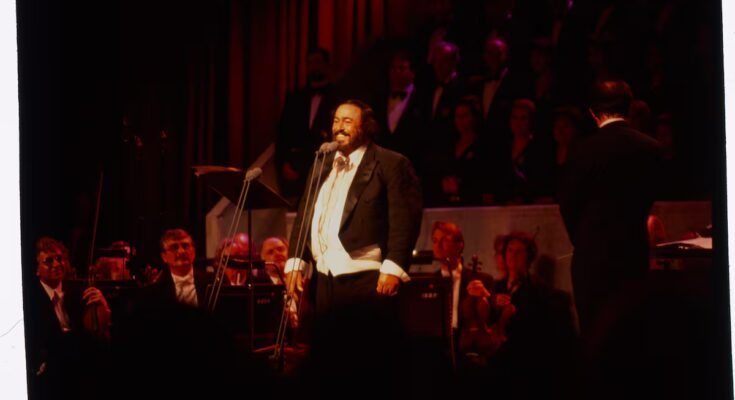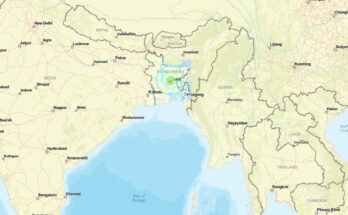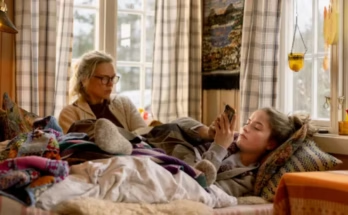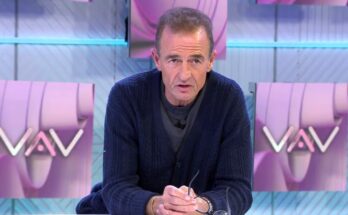Luciano Pavarotti was born in Modena in 1935, but his first venture as a singer took place far from Italy. Specifically to Llangollen, a picturesque town in West Wales that still has an active steam train line. He went there in July 1955 to take part in the Eisteddfod Men’s Choir Competition. He was 19 years old at the time and his name was among the members of the Gioachino Rossini Choral Society of Modena, a group amateur made up of workers from a car factory, office workers, students and a baker, Fernando, his father and, like him, an amateur tenor. “Dad, it’s impossible to sing better than we did,” she told him after performing the In the name of Jesus by Jacobus Handl which earned him the gold medal. It was so hot under the tent where the final took place that, when the jury’s decision was announced, the group’s director fainted on stage.
Returning to Italy, Pavarotti abandoned his teaching studies and began the musical career that would lead him to become one of the most famous tenors of the 20th century. He enrolled in a singing course with Arrigo Pola. In the sixties his Rodolfo de La Bohème He thrilled the audience during his time at Covent Garden in London, at La Scala in Milan (with Karajan in the audience) and at the Met in New York. From then on, when journalists asked him what the most defining moment of his career was, his memory always took him back to Wales. “That victory changed everything,” he used to say. “Because it came from nowhere and gave me a mix of strength and self-confidence.” His much heralded return to Llangollen finally came in 1995, four decades after his debut, accompanied by the Rossini Chorale (with his 83-year-old father in the front row) and the BBC Philharmonic conducted by Leone Magiera. Waiting for him at the Eisteddfod Pavilion were the cameras of the Welsh public broadcaster and more than 4,500 spectators.
On 12 October Pavarotti, who passed away in 2007, would have turned 90 and to celebrate the anniversary the Decca label has recovered the original cassettes, so far lost, of that memorable 1995 performance. “It all started from a conversation between a producer from the network and a consultant from the record company”, says Amy Greer, head of the label’s classical catalogue. “We thought that the remastering of the concert, which has not been reissued or released commercially, had great symbolic value.” The lost concert includes arias, choruses and overtures from operas by Verdi and Puccini, among other authors, Neapolitan songs (such as O my sun), Him Hail Mary, sweet Mary of Benvenuti (with lyrics by Pavarotti himself), as well as the first known recordings of the tenor as a member of the Rossini Choir during the 1955 competition: the Renaissance works Bonjour mon coeur of Orlando di Lasso and the aforementioned In the name of Jesus of Handl.
It was customary for the families of the town to offer free accommodation to choirs from every corner of Europe. Pavarotti and his father, who did not speak a single word of English nor knew that a language called Welsh existed, stayed at the home of Alice Griffiths, to whom decades later the press dedicated several articles. “I went to see them sing in Llangollen,” he told reporters. “They had wonderful voices, but I never thought that young man would become so famous.” Curiously, in the program of guest artists at the 1955 Eisteddfod, the soprano Joan Sutherland performed, who would soon become Pavarotti’s inseparable ally in his bel canto exploits, and the baritone Tito Gobbi, another of his references. “We have no evidence that he met them personally, but it is clear that what he saw and heard encouraged him to follow in their footsteps,” Greer says.
“Luciano often spoke to me about that first trip to Wales,” recalls Nicoletta. Mantovani, heir of the tenor and mother of the youngest of his four daughters. “It was an unforgettable and formative experience: he had never left post-war Italy and, suddenly, he found himself in an international competition, with different food, other habits, another language… Everything seemed new and fascinating to him”. Upon arrival in Modena, a procession took place in honor of the winning choristers. “He told me that if a small choir from a provincial town could win a world competition, perhaps he too could have a career.” The family supported him from the beginning: “Luciano deeply admired his father. They had a great time at the Rossini Choral rehearsals. Fernando had an incredible voice, but he didn’t have the courage to sing alone. He once jokingly said to his son: ‘Can you imagine the career you would have had with my instrument?’
Since the singer’s death in 2007 from pancreatic cancer, Mantovani has managed his estate and ensured the operation of the Modena House Museum, which receives more than 50,000 visitors a year. “Luciano’s mission was to bring opera all over the world, which is why he took music out of theaters and performed in stadiums, squares and parks with pop stars,” adds his widow. “He never forgot the new generations: he taught for free, he wanted to reciprocate the help he received and offered opportunities to young people. He always said that the decisive moment comes after the classroom, when they have to deal with the public”. And she assures that Pavarotti would have liked to celebrate his 90th birthday “with another of his big surprise parties”, like when he organized a masquerade ball for her created by Umberto Tirelli on the occasion of her seventieth anniversary. “He almost had a heart attack seeing so many friends together.”
His return to Wales in 1995 was not without complications. “We had to convince Tibor Rudas (his manager in those years), who inspected the facilities before approving the visit,” explains Greer. By now Pavarotti was already a world star: to his triumphs in the great temples of opera, from San Francisco to the Paris Opera, were added the grandiose concert in Hyde Park, the phenomenon of the Three Tenors emerging from the Baths of Caracalla and his appearances with Gloria Estefan, Mariah Carey, BB King, Sting and Bono. “Who would have imagined it then No sleep would reach number two in the pop charts and sell hundreds of thousands of copies? Nothing like this had happened before and it hasn’t happened again,” continues the project manager. The lost concertwhich will be published on Friday. “It was the moment Pavarotti transcended opera and brought classical music to the general public.”



